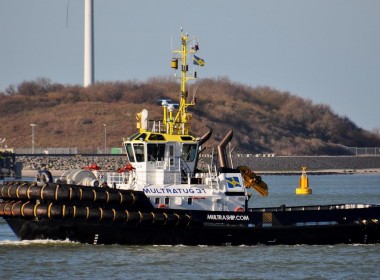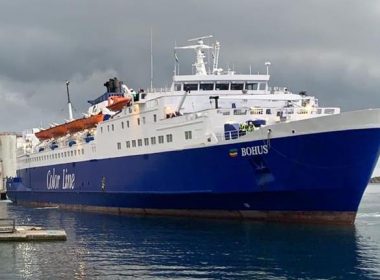Poor ventilation, lack of insulation contributed to engine room fire on Mississippi River tug, NTSB report reveals

The National Transportation Safety Board (NTSB) has completed its investigation into the engine room fire incident that occurred on board a towing vessel on the Lower Mississippi River near Baton Rouge, Louisiana, on March 17, 2021.
At about 00:45 local time on the said date, the towing vessel Miss Dorothy was pushing 14 barges upbound on the Lower Mississippi River, about 20 miles (32 kilometres) north of Baton Rouge, when a fire broke out in the engine room.
The eight crewmembers aboard briefly attempted to fight the fire but were unsuccessful and evacuated to the barges. They were rescued by a Good Samaritan vessel, which then secured the tow against the bank.
The fire was extinguished several hours later by first responders and the crew aboard the Good Samaritan vessel. No pollution or injuries were reported, while damage to the vessel was estimated at US$2.4 million.
The NTSB determined that the probable cause of the engine room fire aboard Miss Dorothy was the ignition of spraying diesel fuel from a main engine’s fuel system onto an uninsulated section of the engine’s exhaust system. Contributing to the severity of the fire and damage to the vessel was the inability to effectively secure ventilation to the space and fuel to the affected engine.
The NTSB said engine rooms contain multiple fuel sources, making the spaces especially vulnerable to rapidly spreading fires. Regulations for towing vessels state that “piping and machinery components that exceed 220°C (428°F), including fittings, flanges, valves, exhaust manifolds, and turbochargers, must be insulated.”
Uninsulated engine exhaust surfaces can provide an ignition source for flammable liquids that can easily develop into fires that are difficult to contain. Towing vessel owners and operators, US Coast Guard marine inspectors, and third party organisation (TPO) towing vessel examiners should be aware of these dangers and fire risks and should regularly and thoroughly inspect equipment to ensure that measures are in place to prevent flammable liquids from coming into contact with hot surfaces.








